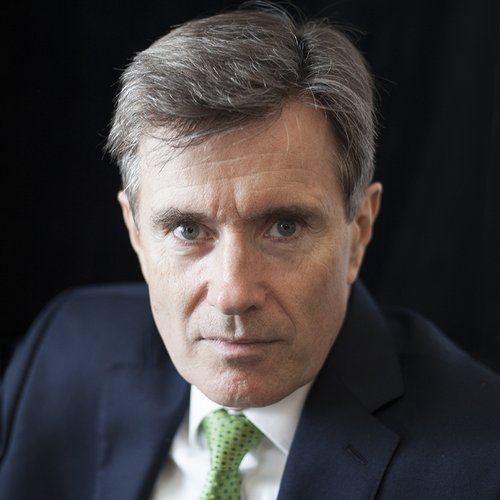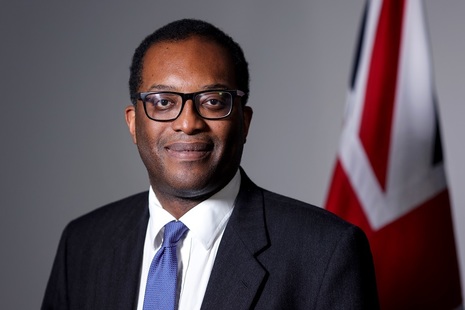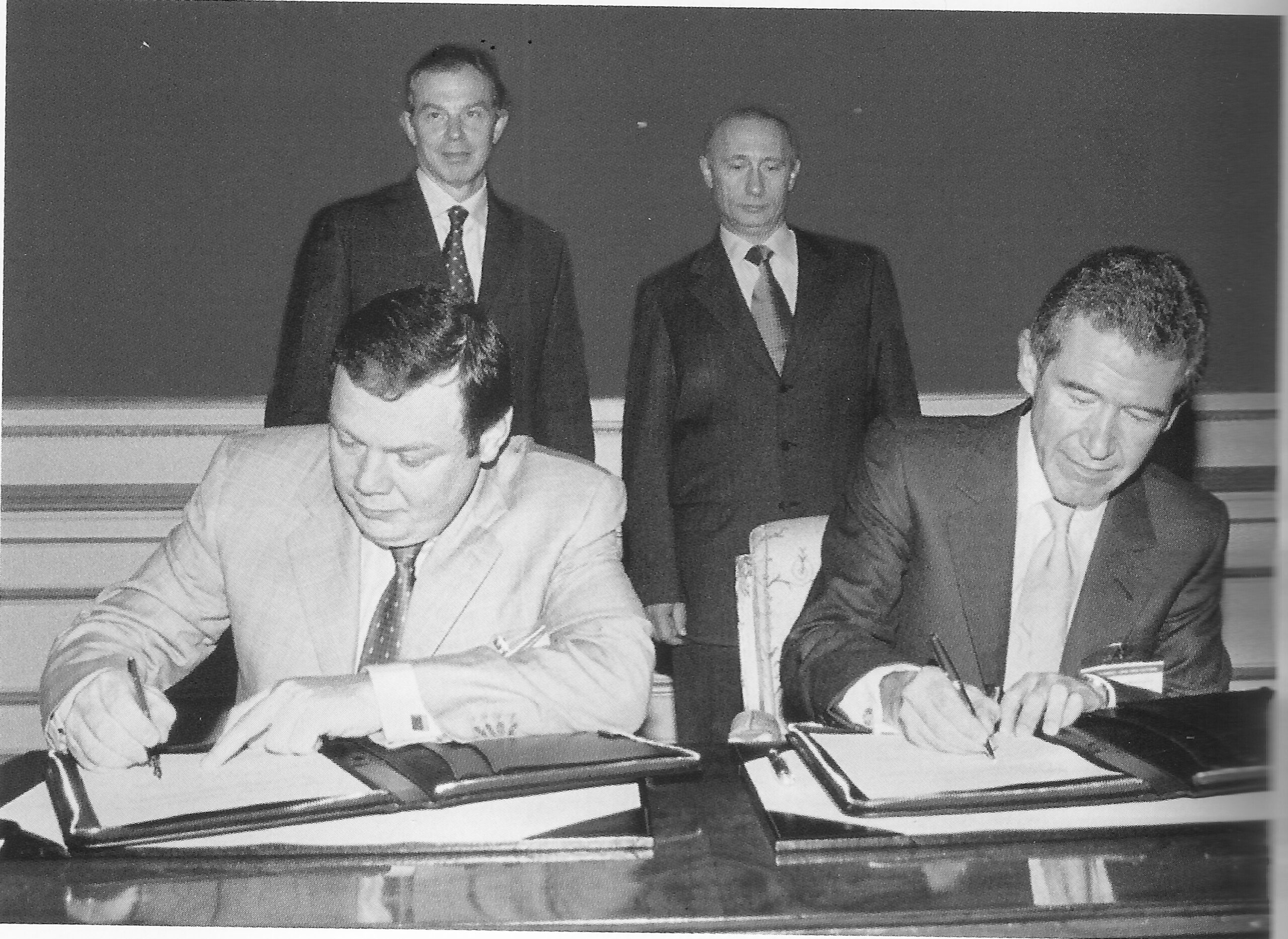
Far from the terrifying realities of the shelling of civilians in Kyiv, Kharkiv and other Ukrainian cities, far from the desperation of women and children trying to board trains for Poland, far from the sickening din of armour in the streets, the guns the economic war are firing.
The bravery of Ukrainian citizens in resisting the tanks is astounding, and those in Russia demonstrating against the war are utterly courageous. We oppose entirely the invasion of Ukraine and this brutal war, and we support the moves by western corporations to pull out of Russia. Yet it useful to explore the motivations and the history behind these boardroom decisions, behind these acts of economic war.
On Tuesday 1st March Bruno Le Maire, French finance minister said the West was using sanctions to wage “total economic and financial war against Russia, Putin and his government”. Le Maire asserted: “We will provoke the collapse of the Russian economy.”[1]
Dimity Medvedev, deputy head of Russia’s security council and a former Russian president retaliated “Today, some French minister has said that they declared an economic war on Russia. Watch your tongue, gentlemen! And don’t forget that in human history, economic wars quite often turned into real ones.”
If there is any truth in these statements, if these are the opening salvos of economic war, then who are the generals and where are the guns?
If one of the theatres of this war is the economy of Russia, then it is obvious that the commanding heights of the world’s largest exporter of gas and second largest exporter of oil, should be its oil & gas industry. If the economic war is to be effectively waged then it will be fought in the routes of trade and finance that surround the commodities of oil & gas. For it is these commodities that underpin the revenues of the Russian state. (It has arguably been the same in many conflicts over, or with, oil producing states, such as between the West and Iran.)
Who then are the generals and what the weapons? Since the sale of Britain’s controlling shareholding in BP in 1979, and since the privatisation of British Gas in 1986 and Britoil in 1988, the UK does not own a state oil & gas corporation. The generals in the oil war are not UK ministers but the chief executives of private corporations, such as BP, Shell, and Centrica. Government Ministers do not have control over a state corporation their power lies in persuading private capital to act in alignment with the state’s interests.
And these chief executives have taken surprisingly swift and decisive actions. Almost without precedent in their speed and scale.
Late on Sunday 27th February Bernard Looney CEO of BP announced the sale of its 19.7% share of Rosneft at a cost of $25 billion. For Rosneft is Russian state-controlled. Both Looney, and former CEO of BP, Bob Dudley have also resigned from Rosneft’s board.
Susannah Streeter, senior investment and markets analyst at Hargreaves Lansdown, said BP’s exit plan is unclear, but this was an “eye-wateringly expensive decision”[2]. She continued: “It looks like it will be highly difficult for the company to recover anywhere near what was considered to be the full value of the stake, estimated to be $14 billion at the end of 2021 and it will also strip BP of lucrative dividends which were due to pour in from the Russian business… Last year higher oil prices and foreign exchange tailwinds helped BP’s underlying profit from Rosneft rise to $2.7bn from $56m” BP’s share of Rosneft’s oil production amounted for about a third of BP Group’s global oil production.[3]
In announcing the move Looney said: “Like so many, I have been deeply shocked and saddened by the situation unfolding in Ukraine and my heart goes out to everyone affected. It has caused us to fundamentally rethink BP’s position with Rosneft.” Whilst
Helge Lund, the company chairman, stated: “Russia’s attack on Ukraine is an act of aggression which is having tragic consequences across the region. BP has operated in Russia for over 30 years, working with brilliant Russian colleagues. However, this military action represents a fundamental change.”
BP’s move was echoed by other corporations.
The following day, Monday 28th February, Shell put up for sale nearly $3 billion of assets in Russia. CEO Ben van Beurden announced that it was selling its 27.5% in the vast Sakhalin II liquid natural gas project on the far eastern coast of Russia, as well as it’s 10% stake in the highly contentious Nord Stream 2 gas pipeline.[4] (The company behind Nord Stream 2 soon after declared it was laying off all its staff. We covered the role of this project in an earlier blog.)
“We are shocked by the loss of life in Ukraine, which we deplore, resulting from a senseless act of military aggression which threatens European security… We cannot – and we will not – stand aside.” said Ben van Beurden. Highlighting that such rapid sales would mean writing off capital he explained: “We expect that the decision to start the process of exiting joint ventures with Gazprom and related entities will impact the book value of Shell’s Russia assets and lead to impairments.”
On Tuesday 1st March it was the turn of Centrica, owner of British Gas and the UK’s biggest supplier of gas and electricity. Chris O’Shea, the chief executive, said: “We are shocked by the events unfolding in Ukraine and the needless loss of life … We intend to exit our gas supply agreements with Russian counterparts, principally Gazprom, as a matter of urgency.”[5]
Beyond the UK other oil corporations including Glencore, Trafigura, Equinor, ENI and ExxonMobil have followed suit. Many multinationals have declared they will cease sales in Russia, among them an array of car companies: BMW, Ford, Renault, Toyota, Mercedes-Benz, Honda, Bentley, Aston Martin, Harley-Davidson, Rolls-Royce, Volvo, Jaguar Land Rover and Volkswagen[6].
Meanwhile UK pension funds have responded to the UK government’s sanctions list and are divesting from Russian oil companies – at least 9 funds are doing so at the point of writing. And local authorities are asking for UK government assistance to extract themselves from gas supply contracts made with Gazprom. Arguably the most potent actions have been the US and EU sanctions against the Russian Central Bank, which restricts the banks access to many of its own reserves.
These are hugely significant maneuvers that are likely not only to impact on the Russian economy in the immediate term, but define the shape of western involvement in the Russian oil & gas industry long into the future. It seems that Russia may be being shunned, and if the military and diplomatic war continues over a long period, the economic war may shift Russia to become an ‘outsider state’ similar to Iran and Venezuela.

Who made these decisions within the corporations? Who made these decisions within BP? If Looney announces the sale of Rosneft at $25 billion then it is inconceivable that this move can be agreed upon without the approval of the majority of the board. And who sits on the BP board? There’s the CEO Looney, the Chairman Lund, the Chief Financial Officer, Auchinloss and then seven non-executives. Significantly of the ten men and women (see below), only two describe their nationality as British, whilst there are four US citizens. This bears out BP’s insistence since the 1970s that it is an international corporation, not a British one. As we described in Crude Britannia, ever since the BP CEO refused to support Prime Minister Edward Heath during the ‘Oil Crisis’ of ’73, the board has only followed UK foreign policy moves when they suit the company. BP’s actions may align with the UK governments view on Russia but it is not acting on behalf of the UK.
The most intriguing of the two British board members is Sir John Sawers, who joined BP in 2015, six months after having been head of MI6 for five years. Sawers made a rare appearance in the media on Wednesday 16th February[7] on Radio 4’s Today programme. He asserted that the risk of a ‘full-blooded’ invasion of Ukraine was never as high as it had been portrayed and had ‘receded’. He clarified that an invasion ‘would always have been a very risky course’ for Putin, and that Putin ‘will think he’s ahead on points’ by getting his security concerns back to the top of the agenda, intimidating Ukraine and reminding Europe how dependent it is on Russian gas. It seems reasonable to assume that was the view which was held by BP at that point in the crisis.

Just ten days later the company pulled out of Rosneft. Those ten days must have been ones of intense debate within BP as the executive team considered strategies for action. There would have been close conversation with analysts at the key institutional shareholders in BP, the top three being BlackRock, Vanguard Group and Norges Bank Investment Management. Perhaps there was sentiment among these American and Norwegian financiers to pull out? Perhaps Russian exposure had become an ‘ESG concern’ (Environmental, Social & Corporate Governance)? Certainly BP’s Investor Relations would need to ‘sell’ to shareholders the move to sell Rosneft. It could have been a hard sell to ditch such a lucrative arm of the corporation. Strong pressure from the UK government would help the company in this effort. State and corporate interests aligning.
On Friday 25th February, the day after the invasion, CEO Looney spoke with Kwasi Kwateng, Business & Energy Secretary. The breaking news from Jim Pickard at the Financial Times that evening was ‘Kwarteng summoned BP chief Bernard Looney this afternoon to explain why it owns a 20% stake in Rosneft, which provides fuel to Russian army’[8] Perhaps the Minister pressurised the CEO? Or perhaps the CEO informed the Minister of the decision he was coming to? Either way state and corporate interests aligned and the guns of economic war fired.

All maneuvers in war are judgements of competing risks. BP has fought for 33 years with extreme tenacity to acquire and retain control over assets in Russia and the Former Soviet Union. As we document in Crude Britannia, Prime Minister Margaret Thatcher had a profound role in this, telling John Browne of BP in 1989 that Gorbachev – President of the Soviet Union – was ‘a man we can do business with.’ Within months BP was working to buy assets in Soviet Kazakhstan and soon after in Soviet Azerbaijan. At several points over the ensuing decades BP looked set to lose its stake in Russia at the hands of the oligarchs and the state. The company called to its defence the Blair government and in particular the skills of Peter Mandelson, a close confidant of John Browne. (Lord Mandelson had a long history of involvement in the Russian business sector, only withdrawing from being a director of the Russian conglomerate Sistema in the summer 2021[9].)
Arguably the most significant step was the TNK-BP deal in June 2003, signed in London between CEO John Browne and Mikhail Fridman of TNK. They were witnessed by Blair and Putin, who Browne described as the ‘godparents’ of the $8 billion investment. Browne wrote of the venture in his autobiography:
“This was huge deal – not just for BP and TNK, but for Russia and the UK. It was the largest transaction in Russian corporate history and the largest foreign direct investment in Russia. Both Putin and Blair were involved. I had already met Putin in Moscow well before he had a significant global profile. I met him again in the UK when he was staying with Blair at Chequers in December 2001. I went down to have a one-to-one meeting with him, as did the CEO from Shell. Putin was well briefed and knew a lot about BP and about me. He was very impressive. I remember thinking to myself: regardless of what this man stands for he is very impressive.”[10]

Despite the support of Putin, five years later in the Summer of 2008, Bob Dudley, head of BP in Russia, was hounded by the state so intensely that he effectively went into hiding. And yet all through these battles, BP held onto its assets. Even when there was intense concern over the Putin government in Westminster and Washington, such as during the annexation of Crimea in 2014, BP held onto these assets. Why has the corporation relinquished Rosneft now?
The sheer gravity of the invasion, and the direction of travel for Putin’s government that it implies, can be felt in the shock behind the statements from Looney and Lund. The words of Sawers ten days earlier suggests that BP did not expect Putin to take this action. But beyond the sincerity of their sentiments, their fundamental concern is for the long-term profitability of the 7th largest corporation in the London Stock Exchange.
According to the research company Morningstar, BP’s stake in Rosneft had fallen in value from around $16.5 billion at the beginning of this year to $6bn following the invasion. For the value of Rosneft’s shares had collapsed shortly after February 11th. This was a company that was plummeting in value and any sanctions against Russia would drive its value even lower. It seems BP was leaving a sinking ship. Furthermore the longer term impact of selling $25 billion of assets at below market price can be hidden by the near term boost in profits coming from the spike in the global oil price to over $113 per barrel – a spike itself driven by the war in Ukraine. Certainly investment analysts seem to be judging that the sale is not badly impacting BP – the company’s share price dropped from 378 pence to 325 on the announcement, but within four days it had made that back entirely and was climbing higher.
Maybe the board of BP could see the writing on the wall and the possibility that the US could take out sanctions on any company trading with Russia? A rule similar to that has been applied to companies attempting to operate in Iran. Perhaps too board members feared that they could become the target of sanctions against individuals? In the manner that UK government and EU is imposing sanctions on specific Russian oligarchs. Such a prospect could be deeply embarrassing for a former head of MI6 who had been on the board of BP for seven years whilst it was one of the largest western companies in Russia.
This maneuver helps BP – and the other corporations that have followed suit – to be seen to be acting in the spirit of public opinion and governments in the West, especially important at a time when the movement against oil on the grounds of climate impacts grows stronger by the day. The Rosneft sale shows just how rapidly corporations can undertake potentially disruptive change, and in this illustrates how they have the capacity to cut loose from oil and gas production as we confront climate chaos. In selling Rosneft, BP is ditching approximately 1 million barrels of crude production a day, and a third of its global output.
Just as John Browne wrote of the TNK-BP signing –
“This was huge deal – not just for BP and TNK, but for Russia and the UK”
– the same can be said of the company’s withdrawal from Rosneft. It is a huge deal, and not just for BP, but for Russia and the UK.
*
Postscript
A little more detail has emerged around the moments of BP’s decision to withdraw – as Tom Wilson and Jim Pickard of The Financial Times explain in a piece published 24th March:
‘Looney called a board meeting on Friday morning, where it was agreed that BP would immediately review the financial, legal and fiduciary implications of divestment. Later that day Looney had a video call with Kwasi Kwarteng, UK business secretary, on which the minister expressed his concern over BP’s Russian connections and whether Rosneft diesel was fuelling Russian tanks. Looney revealed little of BP’s plans, says a person close to the minister. “He did a lot of nodding and saying ‘yes. yes, yes, yes’.” The board reconvened on Sunday and chair Helge Lund announced BP’s exit hours later.
(https://www.ft.com/content/e9238fa2-65a2-4753-a845-ce8129f93a0)
*
Many thanks to Terry Macalister, Simon Pirani, Rob Noyes, Gavin Bridge and Grieg Aitken.
BP Board – March 2022
- Helge Lund – chairman – Norwegian
- Bernard Looney – CEO – Irish
- Murray Auchincloss – CFO – Canadian
- Pamela Daley – non exec – American
- Melody Mayer – non exec – American
- Tushar Morzaria – non exec – British
- Paula Rosput Reynolds – non exec – American
- Karen Richardson – non exec – American
- Sir John Sawers – non exec – British
- Johannes Teyssen – non exec – German
[1] Victor Mallet – ‘Medvedev warns on consequences of economic war’ – Financial Times 1.3.22
[2] https://www.energyvoice.com/oilandgas/europe/390981/bp-to-offload-19-75-stake-in-rosneft-looney-to-leave-russian-companys-board/
[3] https://www.barrons.com/articles/bp-stock-price-oil-output-russia-rosneft-51646089863
[4] https://www.theguardian.com/world/2022/feb/28/shell-to-exit-joint-ventures-with-gazprom-and-pull-out-of-nord-stream-2
[5] https://www.theguardian.com/world/2022/mar/01/british-gas-owner-centrica-follows-bp-and-shell-in-cutting-russia-ties
[6] https://www.ft.com/content/0f0030d6-b8bd-4122-921d-1369be6a5027
[7] ‘Ex-MI6 boss dismisses invasion’ – Metro – 17th February 2022
[8] https://twitter.com/PickardJE/status/1497270460396015621
[9] https://order-order.com/2022/02/24/mandelson-sold-his-russian-shares-before-they-collapsed/
[10] John Browne – Beyond Business, an inspirational memoir from a visionary leader – Weidenfeld & Nicholson, 2010 – p 146